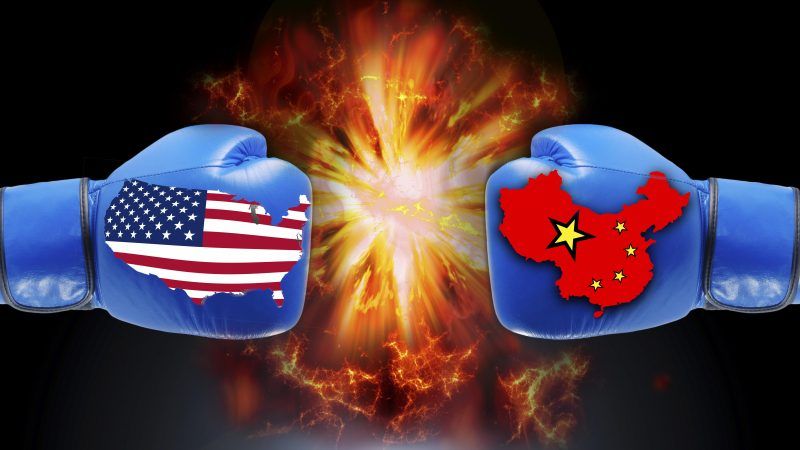Trump Announces Higher Tariffs. At Least He Called Them 'Taxes.'
Existing tariffs on Chinese imports will jump to 30 percent from 25 percent, and the next round of tariffs will be 15 percent instead of 10 percent.

In a series of Friday evening tweets, President Donald Trump announced that he will hike existing tariffs on Chinese imports to 30 percent from 25 percent and will increase the next round of tariffs to 15 percent from 10 percent.
But at least he's finally admitting that tariffs are taxes:
…Additionally, the remaining 300 BILLION DOLLARS of goods and products from China, that was being taxed from September 1st at 10%, will now be taxed at 15%. Thank you for your attention to this matter!
— Donald J. Trump (@realDonaldTrump) August 23, 2019
Trump was apparently unhappy with China's decision to impose new tariffs on American automobiles, oil, and industrial exports starting September 1—tariffs that were a retaliation for Trump's previous announcement that he would impose a new set of tariffs on Chinese imports on the same date.
Shortly after Trump's tweets were issued, the Office of the U.S. Trade Representative clarified that the new 15 percent tariffs would be imposed "on the already scheduled dates" for implementation—in other words, the items that were supposed to remain tariff-free until after the holiday shopping season will still be held aside. That's a minor reprieve for consumers, who figure to bear the brunt of the next set of tariffs.
The announcement of a new tax hike on Americans marked the end of a tumultuous week for the stock market, which had dropped sharply earlier on Friday after another set of Trump tweets in which he (ridiculously) "ordered" American businesses to pull back from doing business with China.
Trump's rage-tweeting today and his impulsive decision to hike taxes on American businesses and consumers—at a time when he's reportedly worried about a potential recession—is yet more evidence that the trade war with China is anything but "good and easy to win."
For those keeping score at home, 30% tax on $250 billion imports+15% tax on $300 billion=$120 billion in taxes, or $941/household based on 127,586,000 households
— ???????????????????? ???????????????????? ???????????? (@FreeTradeBryan) August 23, 2019

Show Comments (84)